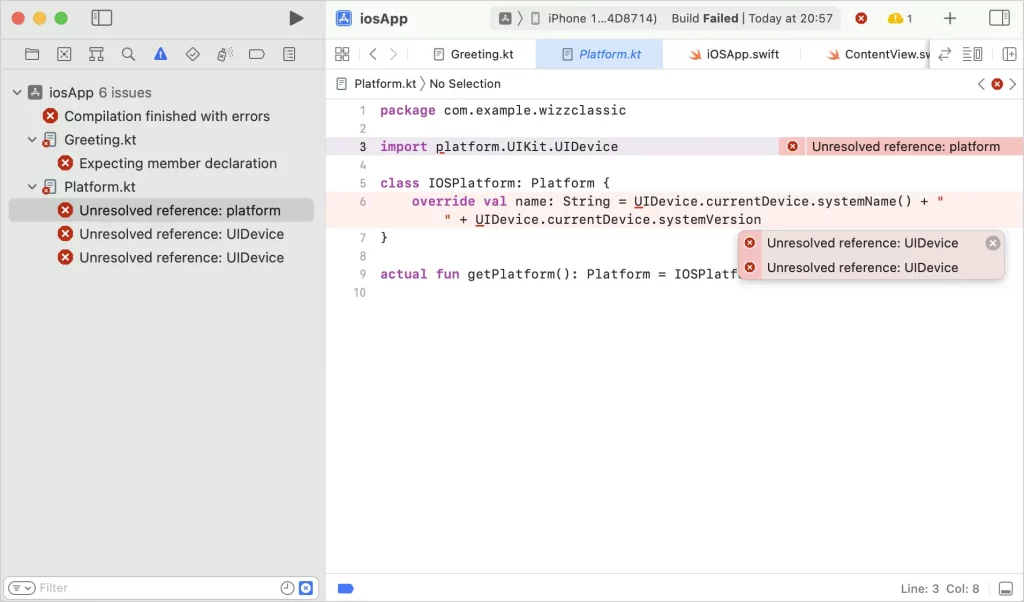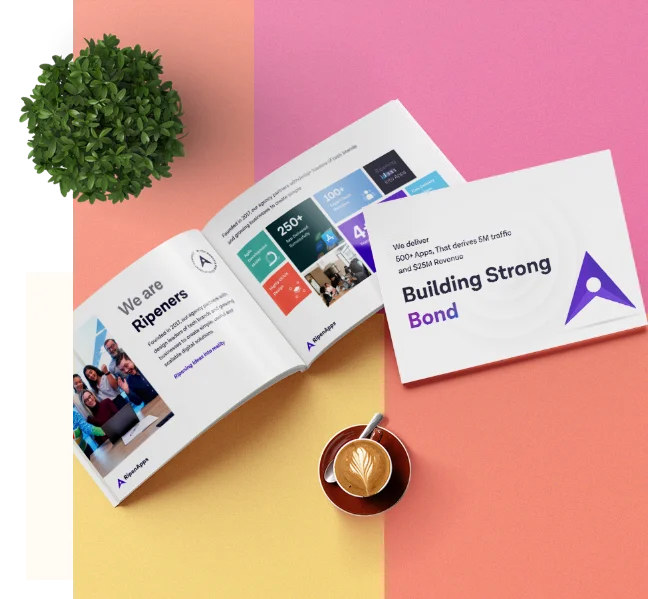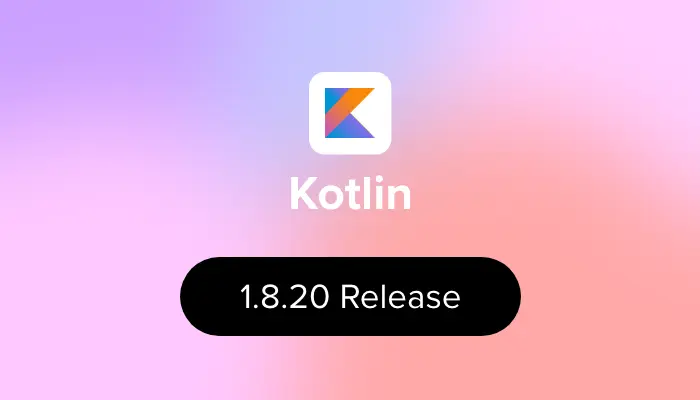Kotlin 1.8.20 release is live, and the update brings some great features for Kotlin Developers. From a new k2 compiler update, experimental Kotlin target to improved output for gradle errors in XCode, and more, we have a brief to discuss. All the highlights point toward the great Kotlin 2.0, which will be released soon. Anyway, let us present you some of the biggest Kotlin 1.8.20 release highlights.
Table of Contents
New and stabilized Kotlin k2 compiler updates
In the previous Kotlin 1.7.0 announcement, the K2 compiler was not in the beta stage. However, the K2 is on the beta road. With the updated Kotlin K2 compiler, developers can preview serialization plug-ins. Here is how to enable the K2 compiler:
-language-version 2.0
In your build.gradle(.kts) specify the below:
kotlin {
sourceSets.all {
languageSettings {
languageVersion = "2.0"
}
}
}
Unlocking advantages with Kotlin/Wasm sync
WebAssemly (Wasm) is a binary instruction format for a stack-based virtual machine. The team of Kotlin is extensively working on finding better ways to let developers use the potential of WASM and unlock more power to Kotlin. We still have to wait for this feature since it’s still in the experimental phase.
When the feature is live, most probably with Kotlin 2.0, it will lead to faster compilation speed & app startup and easier interoperability with JS.
Gradle can compile the JVM incremental by default
Gradle ensures that dependencies work together with their aligned versions. In Kotlin 1.8.20, Gradle automatically performs its task without the need to update or change it by the developers. In case you want to drop any feedback, the JetBrains team is up for suggestions on you track.
Kotlin/Native targets- new and deprecated targets
The Kotlin team keeps on updating and revisiting the target platforms supported by Kotlin. However, the company does not every time adds something new every day, but they also delete unnecessary Kotlin/Native targets. In the removed category, there are a few targets like-
- wasm32
- watchosX86
- iosArm32
- mingwX86
…and a few more. You can check out the complete list of official Kotlin/Native target support on the official website.
Support for the multiplatform preview of Gradle composite
Earlier, it was a challenge for the Kotlin team to build multiplatform Gradle. However, with Kotlin 1.8.20, developers can use Kotlin Multiplatform support for Gradle composite builds. With this, developers can include separate projects into one single build. In order to try the latest feature, head to the gradle.properties and add the below code:
kotlin.mpp.import.enableKgpDependencyResolution=true
The feature achieves a smooth import experience, previews of new import mode, and fixes the major bugs in achieving the same. However, there are known issues that will be solved in the upcoming updates.
Better Gradle errors output in Xcode
“Command PhaseScriptExecution failed with a non-zero exist code” is the common error that developers face while building multiplatform projects in Xcode. However, with the latest release, developers can parse the output in Xcode and identify the root problem.

Experimental support for Base64 encoding and AutoCloseable interface in the standard library
For Base64 encoding and decoding, the Kotlin team has added three class instances:
- Base64.Default: For standard encoding scheme
- Base64.UrlSafe: For URL and Filename safe scheme
- Base64.Mime: For the MIME encoding scheme
Similarly, the AutoCloseable interface has been added to the common standard library. With this, developers can use a common interface for all the libraries. However, the features are experimental in nature and we might have to wait for the next update to use them in stable form.
The stage is set for Kotlin 2.0
Kotlin team actively explores new possibilities to deliver a flexible application development experience to the developers. With Kotlin 1.8.20, numerous features are in high demand. However, most of the features are in the experimental phase. But, Kotlin is definitely setting a big stage for the Kotlin 2.0 release. Stay updated with us by subscribing to our newsletter so that you do not miss robust features to be released in Kotlin 2.0.








 India
India USA
USA Australia
Australia Canada
Canada UK
UK UAE
UAE